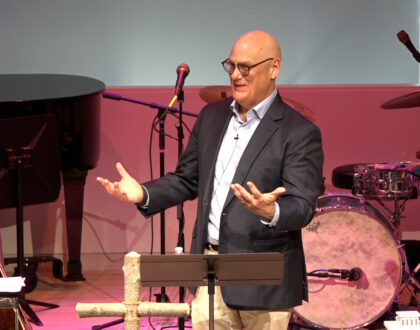The Lost Art of Peacemaking

In his most famous sermon, Jesus said, “Blessed are the peacemakers, for they will be called children of God.” To that, he added, “If you are angry at a brother or sister, you will be liable to judgment.” In the gospel of John, he tells the disciples, “My peace I leave with you, my peace I give to you; I do not give to you as the world gives.” I often wonder how many people are truly serious about peacemaking. It’s certainly not the same thing as “peace-loving” or even “peace-keeping,” both of which are also important. Peacemaking requires an element of initiative and proactivity. It goes beyond simply being passive, indifferent, and uninterested. The culture in which we live longs for peace, but often doesn’t know what peace is or how it is achieved. I recently read an interesting blog written by a spiritual lady named Deb Wolf. She says that peacekeepers seek to avoid conflict, walk on eggshells to not upset anyone, and often hide their true feelings to prevent arguments or tension.” But this is not the same thing as peacemaking. Wolf identifies ten factors that lead to “peacemaking,” which, we could argue, is needed more today than ever before.
First, peacemakers have already experienced the peace and presence of God in their own life. You simply can’t spread to others what you don’t have yourself.
Second, peacemakers have genuine love and concern for other people. They have moved beyond selfishness and narcissism.
Third, a peacemaker spends intentional time every day in prayer and reflection.
Fourth, a peacemaker works to build and sustain trust in every relationship because trust is the currency of relationships.
Fifth, a peacemaker identifies and addresses conflict which may be awkward and uncomfortable but necessary. Conflict that goes unaddressed will often grow and deepen.
Sixth, a peacemaker seeks first to understand others and their point of view. Listening is very important in an age where everybody wants to talk.
Seventh, a peacemaker learns to control their temper and pays attention to body language. Anger can become a very dangerous and toxic emotion.
Eighth, a peacemaker chooses their words carefully and speaks the truth in love. Words, rhetoric, and tone can make all the difference.
Ninth, a peacemaker seeks to work towards resolutions and solutions whenever possible. They move beyond simply identifying a conflict.
Tenth, a peacemaker is not overcome or controlled by fear and anxiety.
Our world needs more peacemakers, more people who proactively seek to build and maintain a peaceful culture. We all recognize that there is too much anger, fear, hostility, resentment, polarization, and hate. The social fabric of our society is not what it used to be. The digital revolution has now ushered in an age of loneliness and social isolation. Drug addiction, suicides, and mass shootings are symptoms of a much deeper problem. One of the patron saints of the Christian tradition is St. Francis of Assisi. Francis once wrote a beautiful prayer that speaks right to the art of peacemaking Lord, make me an instrument of your peace:
where there is hatred, let me sow love;
where there is injury, pardon;
where there is doubt, faith;
where there is despair, hope;
where there is darkness, light;
where there is sadness, joy.
O divine Master, grant that I may not so much seek
to be consoled as to console,
to be understood as to understand,
to be loved as to love.
For it is in giving that we receive,
it is in pardoning that we are pardoned,
and it is in dying that we are born to eternal life.
Amen.
Recommended Posts

Authenticity in a Social Media World
April 16, 2024

“Leveraging Our Love” – Jay Hutchens – April 14, 2024
April 14, 2024

Living with Gratitude & Generosity
April 11, 2024

